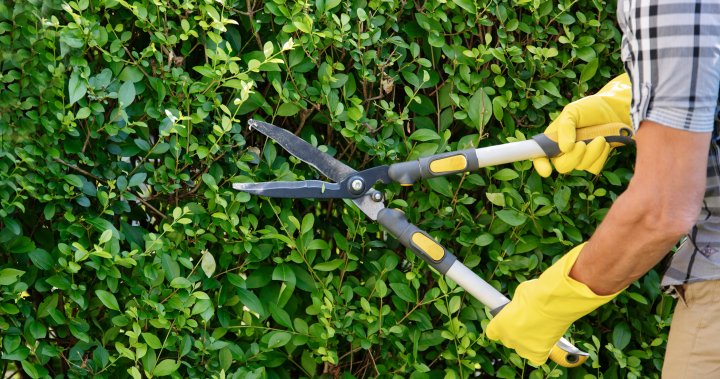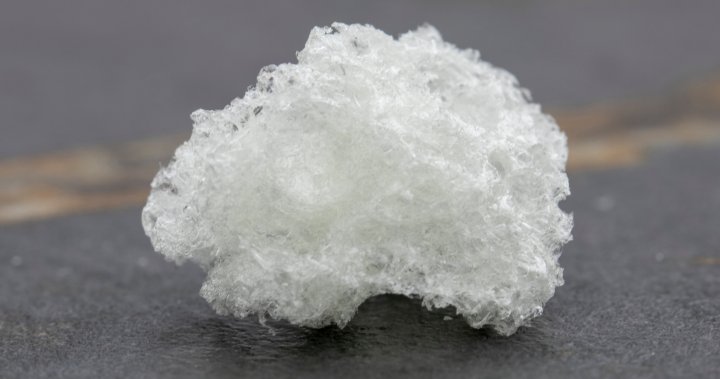The May long weekend is traditionally the most popular time of year for gardening in Canada, and experts say this time around was likely no exception.
Gardening has seen a hike in popularity since the COVID-19 pandemic, experts say, as Canadians look for ways to combat the rising cost of food.
Bill Hardy, chair of the Canadian Nursery and Landscaping Association, said the Victoria Day weekend is considered the start of the gardening season because of traditionally warmer temperatures in most regions.
“Because it’s the long weekend, you’ve got some extra time, you’re in the frost-free period. I think that’s why people usually pick up the gardening habits for the long weekend,” Hardy told Global News on Sunday.
“Even if you get cold rain, … you’re plenty safe pretty much anywhere across the country to start May 24, because that gives you lots of time to still get good harvest out of your veggie crops,” he said.
Hardy said planting vegetable seeds when temperatures are still too cold doesn’t bode well for a fruitful harvest.
“If you put stuff in too early, it just sits there being annoyed at you for sitting in cold ground and rainy weather. That doesn’t really work that well,” he said.
As grocery prices continue to rise, more people are testing their green thumbs to access food. Hardy said food security is definitely a topic of concern for many people.
The email you need for the day’s
top news stories from Canada and around the world.
“Especially since COVID hit and everybody was stuck at home and food security became a big issue, … a lot of people are growing their own veggies,” Hardy said. “The year COVID hit, people were afraid even about getting vegetables out of the store because of supply chain issues.”
Jill Van Duyvendyk, owner of Dutch Growers Saskatoon, echoed Hardy’s observation on Canada’s upward trend of food gardening.
“We’re finding a little bit more of a trend,” she said. “Actually, the last five years, more people (are) putting spots, putting raised beds, putting containers and growing their own food.”
Jason Childs, an economics professor at the University of Regina, said there have been dramatic movements in food prices over the past couple of years.
“During the height of inflation, we’re seeing a lot of that inflation being led by food prices,” Childs said. “That forced people to change what they buy at the grocery store. … We’ve seen this historically in just about every recession, you see an uptick in gardening.”
Total sales in the greenhouse, sod and nursery industries were $4.7 billion in 2021, an increase of 7.5 per cent from 2020, according to Statistics Canada. The growth was a “resounding success,” StatCan said.
The highest sales in the country during that period were in Ontario, British Columbia and Quebec.
Canada’s annual inflation rate rose slightly in March, accelerated largely by higher gas prices. StatCan reported that the overall inflation rate in the country was 2.9 per cent year-over-year in March, up from 2.8 per cent the previous month.
Data from StatCan released in March showed that the prices for food purchased from restaurants increased by 5.1 per cent year over year in January, continuing a trend seen last year.
International food prices have fallen sharply from a record peak in March 2022 at the start of Russia’s full-scale invasion of fellow crop exporter Ukraine.
Rosemary Wasylyshyn from Saskatchewan says gardening comes naturally to her. Having grown up on a farm, she says producing her own food is part of her culture.
“Spring is my favourite time. It makes me feel good, makes me feel happy and I love to see plants growing and producing,” Wasylyshyn told Global News.
Hardy said if you didn’t start planting during the May long weekend, you haven’t “missed the boat at all.”
“It’s definitely not too late. I just can’t recommend doing it more. The health and well-being benefits and the feel-good you get out of it is just a tremendous pick-me-up,” he said.
— with files from Gates Guarin
© 2024 Global News, a division of Corus Entertainment Inc.




